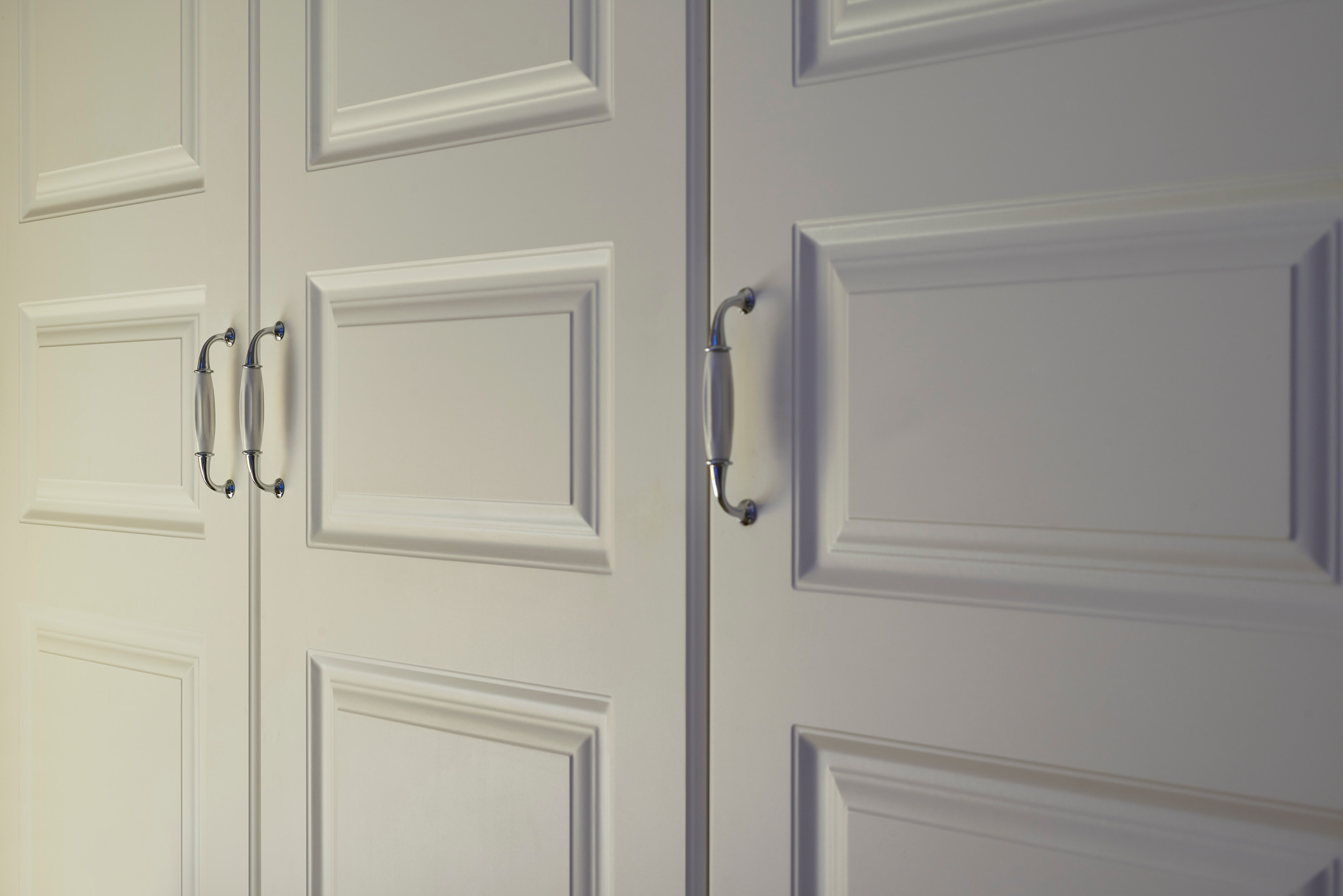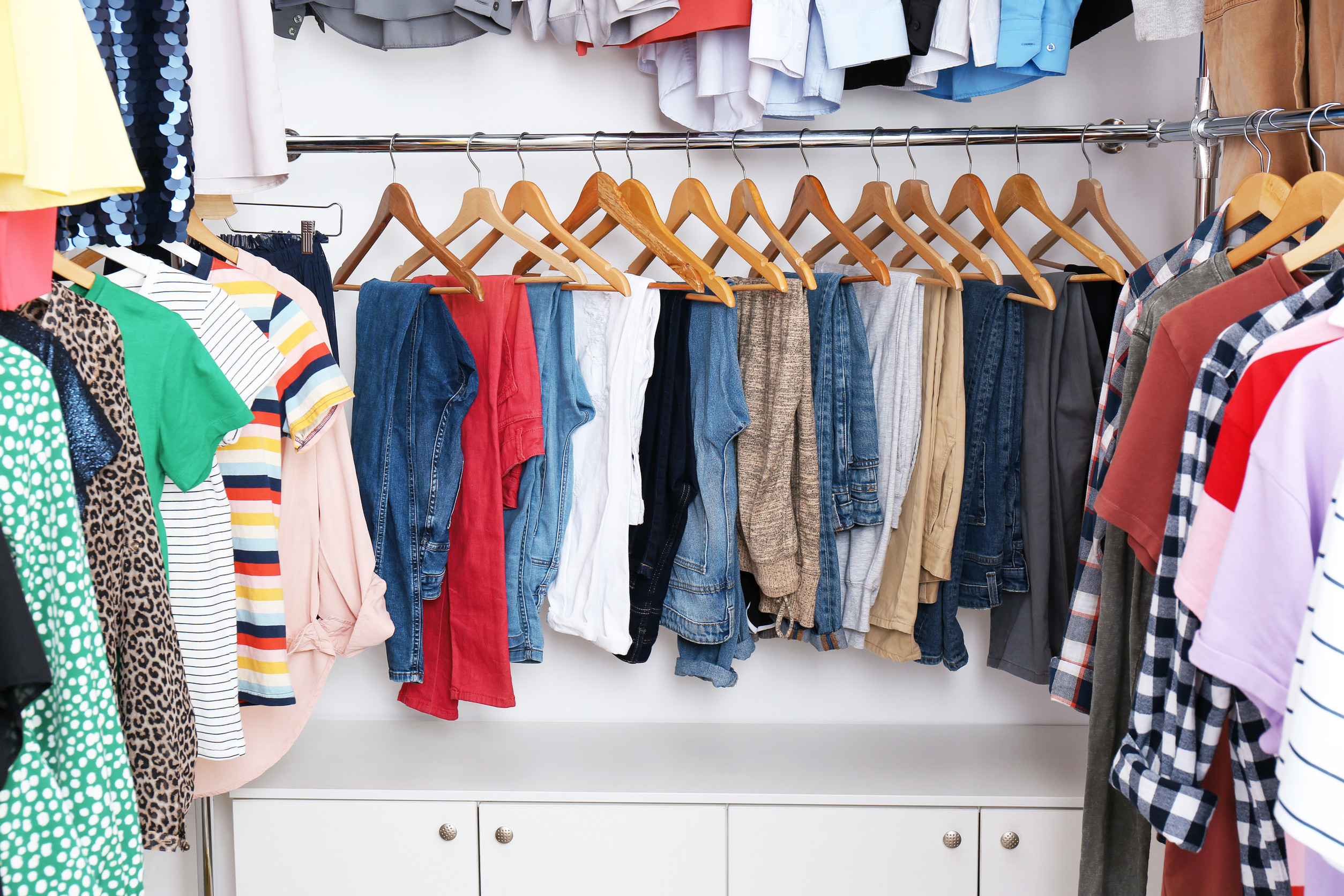It’s easy to overlook the humble closet door. It’s not glamorous, it’s not flashy—but it plays a bigger role in your home than you might think. Keeping it shut isn’t just about aesthetics or habit; it can actually affect your mood, your space, and even your health.
From clutter control to pest prevention, the simple act of closing that door might save you from more than just a messy view.
Clutter Can Mess With Your Mind
A disorganized closet doesn’t just impact your space—it affects your mental clarity. Even if it’s out of sight, that chaotic energy seeps into your subconscious every time you walk past the open door.
A closed closet gives your brain a break, shielding you from visual noise. Your mind craves order, and something as small as a shut door can help provide it. Clarity begins with fewer distractions, and a tidy-looking room starts with hiding the untidiness behind that door.
Guests Don’t Need to See Everything
Your home might be cozy and welcoming, but that doesn’t mean every corner needs to be on display. An open closet can unintentionally reveal more than you intended—out-of-season clothes, storage bins, or a pile of mismatched shoes.
Closing the door maintains a clean impression without requiring you to organize it every time someone stops by. It’s a simple courtesy to both yourself and your guests. After all, some things are better left unseen.
You’re Protecting Clothes from Dust
Believe it or not, dust doesn’t care whether your clothes are folded or hanging. An open closet door invites airborne particles to settle into fabric, especially if your home is older or you live near construction.
Keeping that door closed acts as a barrier, helping maintain the freshness and cleanliness of your wardrobe. It can save you from extra laundry and extend the life of your favorite pieces. Your future self will thank you every time you pull out a sweater that still smells clean.
It Keeps Curious Pets (and Kids) Out
Cats love small, dark places. Dogs love to dig. Toddlers? They love to explore everything, including your carefully folded T-shirts and favorite boots.
A closed closet door can prevent your little companions from turning your clothing collection into a playground. It may seem minor, but shutting that door is one way to maintain boundaries in a house full of unpredictable energy.
Energy Efficiency Gets a Boost
If your closet shares space with heating or cooling systems, an open door could be messing with airflow. It might not seem like much, but open doors can disrupt the circulation your HVAC system relies on to keep your home at a stable temperature.
Closed doors help maintain the room’s climate by containing the conditioned air. That can lead to less strain on your energy systems and even lower utility bills over time. It’s a small move that contributes to overall efficiency.
Your Closet Isn’t a Focal Point—So Don’t Make It One
Most closets weren’t designed to be admired. Unless you have a walk-in wardrobe worthy of a showroom, that open door draws the eye to an area meant to be functional, not decorative. Closed doors let your space breathe visually, allowing focal points like art, windows, or furniture to take center stage.
The more intentional your visual landscape is, the more peaceful your room feels. Keeping the closet closed helps preserve that balance.
Keeps Unwanted Odors Contained
Sometimes, storage can take on a scent of its own—especially in older homes or humid climates. Open closet doors can let those odors drift into your living space, making the whole room feel less fresh. Closing the door helps isolate musty smells while giving you time to address the source.
It’s not just about hiding mess—it’s about maintaining a pleasant environment. Smell travels quickly; boundaries help slow it down.
Reduces Visual Overwhelm Before Bed
The last thing your eyes need before you wind down is a view of cluttered shelves and overflowing hangers. Open closet doors can overstimulate your senses, even if you’re not actively looking at them. Your bedroom should be a place of calm, and visual chaos can quietly disrupt your ability to rest.
Closing the door before bed can be a form of mental closure, too. It says, “The day is done—nothing more to manage tonight.”
It Helps Keep Bugs at Bay
Believe it or not, your closet can attract more than dust. Dark, quiet spaces with fabric and cardboard can become havens for pests like moths or even the occasional spider. An open door makes it easier for critters to wander in, especially if your closet is near a window or vent.
By keeping the door shut, you’re creating one more barrier against those unwelcome visitors. It’s a basic yet often overlooked form of pest control.
The Door’s There for a Reason
In the end, a closet door is a design choice with purpose. It wasn’t added just to be opened and forgotten—it’s meant to define, protect, and separate.
Whether it’s preserving your privacy or keeping your space functional, that door does more than you realize. Using it properly brings structure to your environment, both physically and psychologically. So go ahead—close it and let your space breathe.
Keep Your Door Closed And Your Mind Happy
What’s your relationship with your closet door—always open, always shut, or somewhere in between? Have you noticed a difference in your space or mindset based on how you treat it?
Drop your thoughts, habits, or even a funny closet story in the comments below. Let’s talk about the little choices that shape how we live, one door at a time.
Read More
Dreaming of Homeownership? These 5 Situations Make It Possible At A Low Interest Rate
The ‘One-Minute Rule’ That Makes Cleaning Way Easier



Leave a Reply